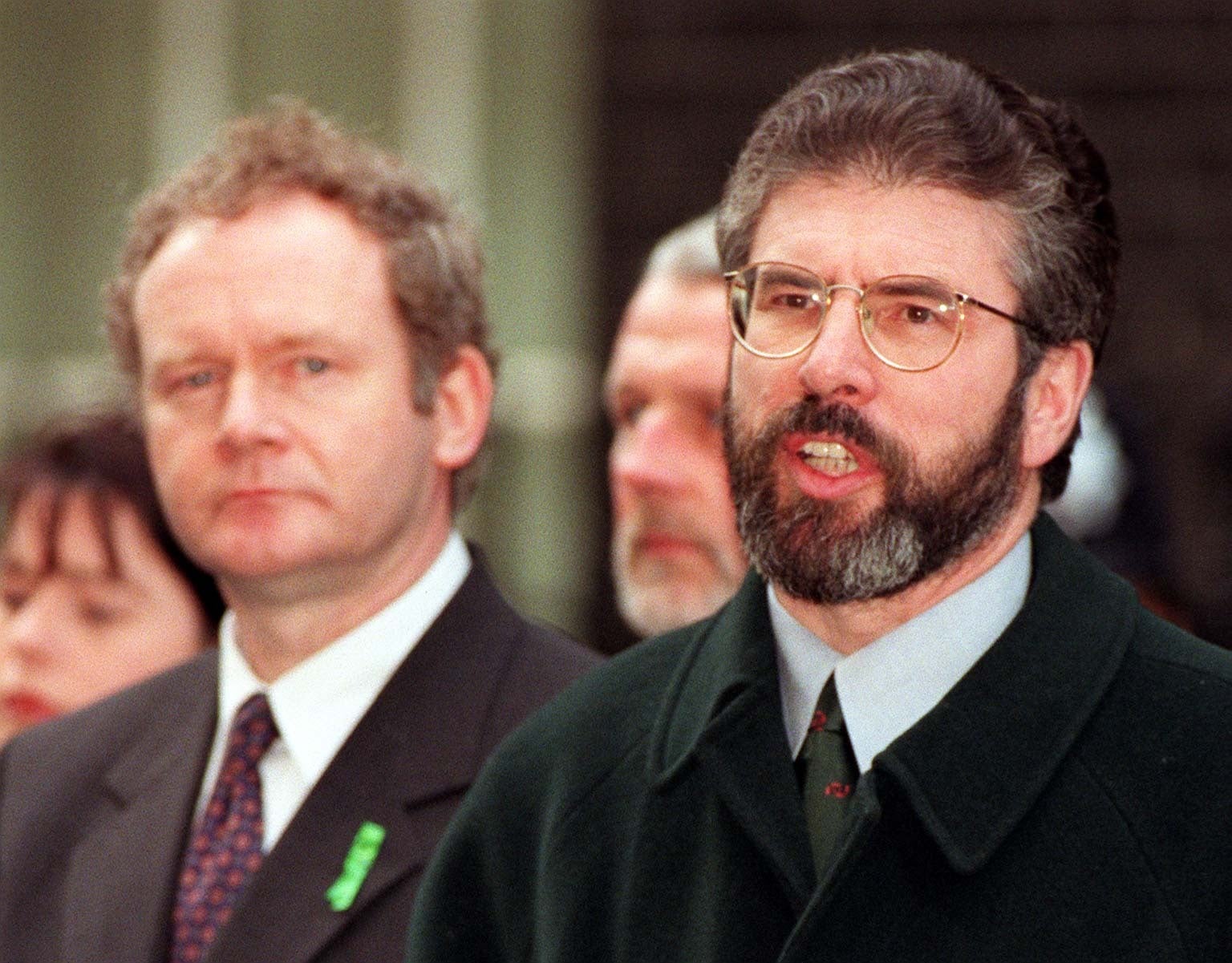Guidance on ministerial contacts with Sinn Fein changed four times ahead of GFA
The policy was updated several times in response to IRA activity and Sinn Fein’s position on non-violence.

Your support helps us to tell the story
From reproductive rights to climate change to Big Tech, The Independent is on the ground when the story is developing. Whether it's investigating the financials of Elon Musk's pro-Trump PAC or producing our latest documentary, 'The A Word', which shines a light on the American women fighting for reproductive rights, we know how important it is to parse out the facts from the messaging.
At such a critical moment in US history, we need reporters on the ground. Your donation allows us to keep sending journalists to speak to both sides of the story.
The Independent is trusted by Americans across the entire political spectrum. And unlike many other quality news outlets, we choose not to lock Americans out of our reporting and analysis with paywalls. We believe quality journalism should be available to everyone, paid for by those who can afford it.
Your support makes all the difference.Official guidance to ministers on engaging with Sinn Fein was updated four times in the lead up to the Good Friday Agreement in response to IRA activity and the party’s shifting positions on non-violence.
A series of memos circulated among Government departments in Northern Ireland during 1997 and 1998 show how a ban on ministers meeting directly with Sinn Fein was lifted only to be reinstated a few months later.
In May 1997, the month that the Labour government came to power in the UK, new Guidelines for Contact were cleared by Secretary of State Mo Mowlam.
At the time, the IRA was continuing its campaign of violence – having broken its August 1994 ceasefire in February 1996.
The guidelines are contained in a file released from the Public Records Office of Northern Ireland.
“In the absence of an IRA ceasefire, contact between Sinn Fein and Government Ministers and officials will be circumscribed as follows,” the document reads.
“Ministers will not hold meetings with Sinn Fein elected representatives or an exclusively Sinn Fein delegation in any circumstances nor will they meet, on Government property, a delegation or group which includes Sinn Fein representatives.
“The denial of Ministerial contact with Sinn Fein as a party is in line with the policy of the Irish Government.”
The guidelines said ministers could continue to participate in outside visits in Northern Ireland and Great Britain on the “understanding that any contacts with Sinn Fein representatives will be incidental to the primary purpose of the visit”.
On such visits, it said social contact with any Sinn Fein representative should be “avoid or minimised”.
The guidance said senior officials could meet with Sinn Fein to discuss policy issues only with the “explicit approval of the appropriate Departmental Minister”.
It added: “Contact between Sinn Fein representatives and junior officials on purely constituency matters will continue as before to avoid any accusation of disenfranchising the relevant electorate.”
In July of that year, the IRA declared a second ceasefire – a move that that saw Sinn Fein invited to participate in renewed peace talks in the autumn.
Sinn Fein subsequently declared support for the Mitchell principles – a set of ground rules for participating in the talks mediated by US Senator George Mitchell The principles included commitments to non-violence and exclusively political means.
This new policy has been specifically introduced on the basis that it will continue in operation for only so long as Sinn Fein remain eligible to participate in the Talks and the IRA ceasefire remains in place.
These developments prompted revised internal Government guidance on September 25.
“In the wake of the Secretary of State’s announcement on 29 August that she regarded the ceasefire as unequivocal and Sinn Fein’s formal commitment to the Mitchell principles of democracy and non-violence on 9 September, Ministers have agreed that they would be ready to consider requests from representatives of Sinn Fein to meet Ministers and officials on their merits.
“Such requests from Sinn Fein should be dealt with on the same basis as requests from other parties having regard to the level of their electoral support and political representation. This new policy has been specifically introduced on the basis that it will continue in operation for only so long as Sinn Fein remain eligible to participate in the Talks and the IRA ceasefire remains in place. The policy would therefore have to be reviewed again urgently were either of these two factors to change.”
Five months later, in February 1998, the position was reversed when Sinn Fein was temporarily excluded from the talks process after the IRA was implicated in two murders.
Another month later, a further guidance update was issued, changing the policy once again.
“Following Sinn Fein’s return to the Talks on March 23 and reaffirmation of the Mitchell principles, the Central Secretariat guidance of 25 February 1998 on contact with Sinn Fein is withdrawn,” it stated.
“Contacts with Sinn Fein in the context of access to Government should be dealt with according to the Central Secretariat guidance on 25 September 1997.”